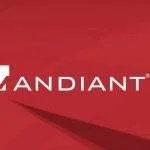New research shows that Australia’s High Net Worth (HNW) investors are more numerous, wealthier, have fewer significant worries, and are increasingly confident about the direction of the share market.
This research, commissioned by platform provider Praemium Limited, and carried out by research company Investment Trends, involved more than 11,000 investors, including more than 2,200 who met the HNW criteria. These criteria involved $1 million in discretionary investable assets, including their self-managed super fund, excluding their super, home and business net of debt.
There are now an estimated 635,000 millionaires in Australia, who control $2.77 trillion in investable assets. A year ago, the numbers were 488,000 and $2.02 trillion, seeing a rise of 31% and 37% respectively.
Sarah Brennan, CEO at Investment Trends commented:
“The post-pandemic asset price surge has fueled historical growth in HNW investor numbers.”
The number of millionaires in Australia was fairly constant between 2017 and 2020, before this year’s dramatic rise. There were 424,000 millionaires in Australia in 2017, 434,000 in 2018, 458,000 in 2019 and 488,000 in 2020.
Anthony Wamsteker, CEO of Praemium Limited noted that:
“The results of the research demonstrated not only the resilience of Australia’s wealthier investors but also the resilience of Australian capital markets, which rallied significantly following a sharp fall at the start of the COVID pandemic in early March last year.
“During the COVID-19 Pandemic, Australian investors could have been excused for retreating into their shells a little with the share market bumping along the bottom for a while,” he said. “But the research shows that Australia’s wealthiest investors are a very optimistic group. Once they got over the shock of the fall in the share market, they were happy to weigh back in. Their levels of optimism are much higher than they were a year ago.”
In September last year, 50% of Australian HNWs expected the share market to fall, 40% expected it to rise and 10% expected it to stay the same. A year later the respective numbers were 32%, 68% and 0%.
Australian HNWs are far less worried today than they were a year ago. The chief concerns among HNWs are: COVID (45%, down from 68% last year); tension between the world’s major economies (43%, down from 53% last year); and another global market crash (40%, up from 37%).
The two biggest drops in concerns over the year were concerns about the Australian economy (63% to 30%) and concerns about the White House administration (47% to 19%).
The research shows that Australian HNWs are keen to continue riding the wave of a rising share market. 20% of respondents, the highest percentage in the past 10 years, said their key objective in the next year is to maximise capital growth.
The percentage of those looking to protect themselves against market falls was 8%, the lowest percentage in the past ten years.
Against this backdrop, the All-Ordinaries Index rose strongly by 28% in the 12 months to September 2021 (from 6,108 to 7,826).
There was considerable growth in HNW investor numbers across all wealth bands. For instance, those with $2.5-5 million of assets rose from 170,000 to 179,000; those with $5-10 million of assets rose from 56,000 to 59,000; and those with $10-70 million of assets rose from 18,000 to 28,000. Those 28,000 people control over 40% of the assets held by HNW investors.
Some other key findings from the research included:
- ETFs and cryptocurrencies were the asset classes that saw the largest growth in uptake among HNWs during the past year
- ETFs, LICs and REITs remained the three top asset classes among HNWs
- Ultra HNW Investors (those with over $10m in investable assets) have a higher desire than other investors for consolidated reporting and administration assistance, ideally from a single digital platform
In terms of the advice requirements of Australian HNWs, 13% of respondents said they were happy to use investment advisers; 52% said they were happy to use advisers only to validate their own thoughts, to gain access to a wider range of investments or for technical skills; and 33% said they did not use advisers at all.
During the past year, the percentage of HNWs using accountants for tax advice rose from 52% to 56%, while those using investment advisers fell slightly from 41% to 40%.
HNWs paid their private client advisers an average of $7,574 in 2021, up from $7,000 in 2020.
Mr Wamsteker said the research highlights a growing array of unmet advice needs for HNW Australian investors, particularly inheritance and estate planning and strategies to reduce tax obligations. Yet simultaneously there is a reluctance from many of them to use investment advisers.
“This presents an opportunity for Australian investment advisers to help meet these needs via a holistic total wealth management experience. Articulating the value their advice can bring and adapting to provide HNWs with superior and sophisticated service and technology will help to meet the needs of this growing and important investor segment,” he said.







